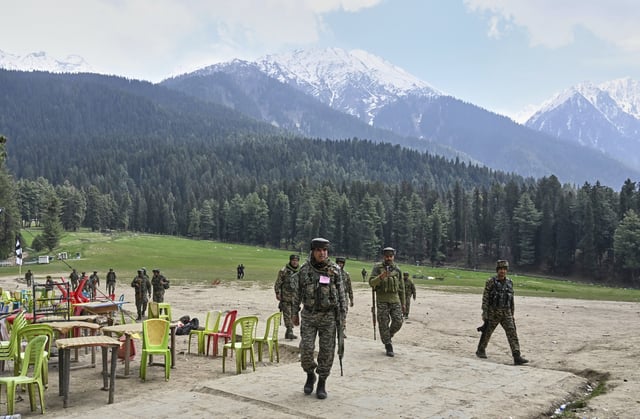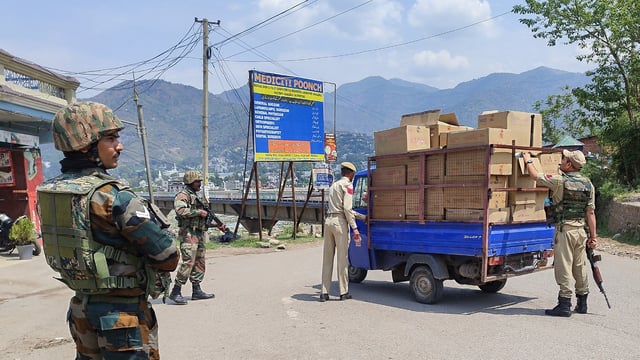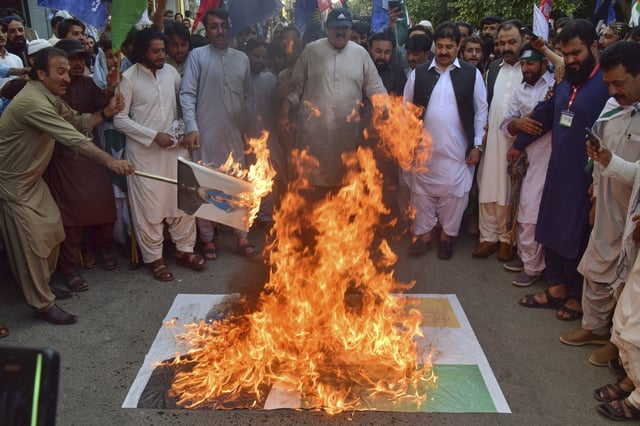Overview
- Cross-border firing along the Line of Control has persisted for 11 consecutive days, with Indian forces responding proportionately to unprovoked Pakistani fire.
- Prime Minister Modi has granted the Indian military full operational freedom to decide on the timing, targets, and mode of response to the April 22 Pahalgam attack that killed 26 civilians.
- India has imposed sweeping diplomatic and economic sanctions on Pakistan, including suspending the Indus Waters Treaty and expelling Pakistani nationals, in response to the attack.
- Pakistan's ambassador to Russia has warned of potential nuclear retaliation if India conducts military strikes, further heightening tensions in the region.
- High-level meetings between Modi and defense leaders, including the Air Chief and Defense Secretary, underline India's preparedness for a potential response to the attack.



